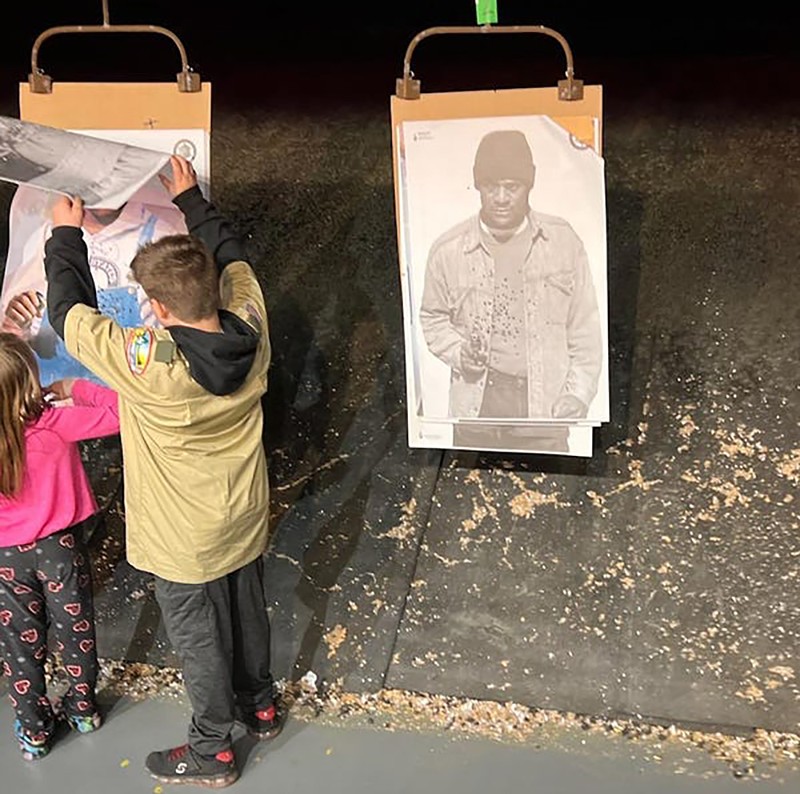
A metro Detroit police department criticized for using images of Black men as shooting practice targets was sued last year for racial discrimination, Metro Times has learned.
Farmington Hills Police Chief Jeff King recently faced criticism after a parent touring the department with a Boy Scouts troop back in April said they saw images of Black men used as targets. During a public meeting on Monday, King said the department uses targets depicting all kinds of people and apologized to the community, about 20% of which is Black.
“I’ll take this one on the chin,” he said, according to Hometown Life. “I apologize to each and every person in this room, this community, my department, my city council, my city manager; I can’t overlook this. I promise you this will make us stronger, this will make us better, make us more transparent.”
It’s not the first time the department has been criticized for race issues. Last year, a Black police office filed a federal lawsuit against the department and police chief King, alleging discrimination.
According to the lawsuit filed in the U.S. District Court and reported by The Detroit News in January 2021, officer Dwayne J. Robinson alleged that he and other Black officers were repeatedly denied opportunities for career advancement provided to less-qualified white officers.
Robinson also alleged that King required him and other officers to be “clean-shaven” in order for N-95 respiratory masks to better fit them during the height of the COVID-19 pandemic. But Robinson said he has a dermatological condition called pseudofolliculitis barbae that afflicts Black men and makes a close shave painful. When Robinson proposed alternative solutions, King placed him on sick leave, according to the lawsuit.
Reached for comment, King denied that the discrimination lawsuit showed racial bias in the police department.
“The lawsuit was withdrawn earlier this year, as there was no basis for the accusations filed against the City and Police Department,” King said in a statement shared with Metro Times.
The department has argued that the shooting practice targets are, perhaps counterintuitively, used to help train against implicit bias. It says it uses images depicting all races, both “threats,” or people holding weapons, and “non-threats,” or targets that should not be shot at.
“This is the preferred method to train officers and prepare them to make a split-second decision to make a life-saving or non-threat situation,” King said Monday.
“I have never been trained to shoot at any particular race, gender, age, or anything of this nature,” FHPD officer Kevin Clark also said during the meeting. “The reason various targets are used is to work through what everyone has. It’s an implicit bias.”
The city says that only about 185 images out of 2,300 used in the department’s target practice depicted Black men. Farmington Hills Mayor Vicki Barnett says the images have been removed as the city is conducting an investigation.
“We have an excellent police department in this city,” Barnett said. “It is in our fervent hope of possibilities that we are all learning together how to be a better society. We are working through this as you are.”
During a recent press conference, Southfield attorney Dionne Webster-Cox suggested that using shooting targets depicting Black men could worsen implicit bias.
“What are you trying to plant in their head, that this is the target?” Webster-Cox said. “This is who we should fear? This is who we should be afraid of? That’s problematic. That outrages me.”
Stay connected with Detroit Metro Times. Subscribe to our newsletters, and follow us on Google News, Apple News, Twitter, Facebook, Instagram, Reddit, or TikTok.

